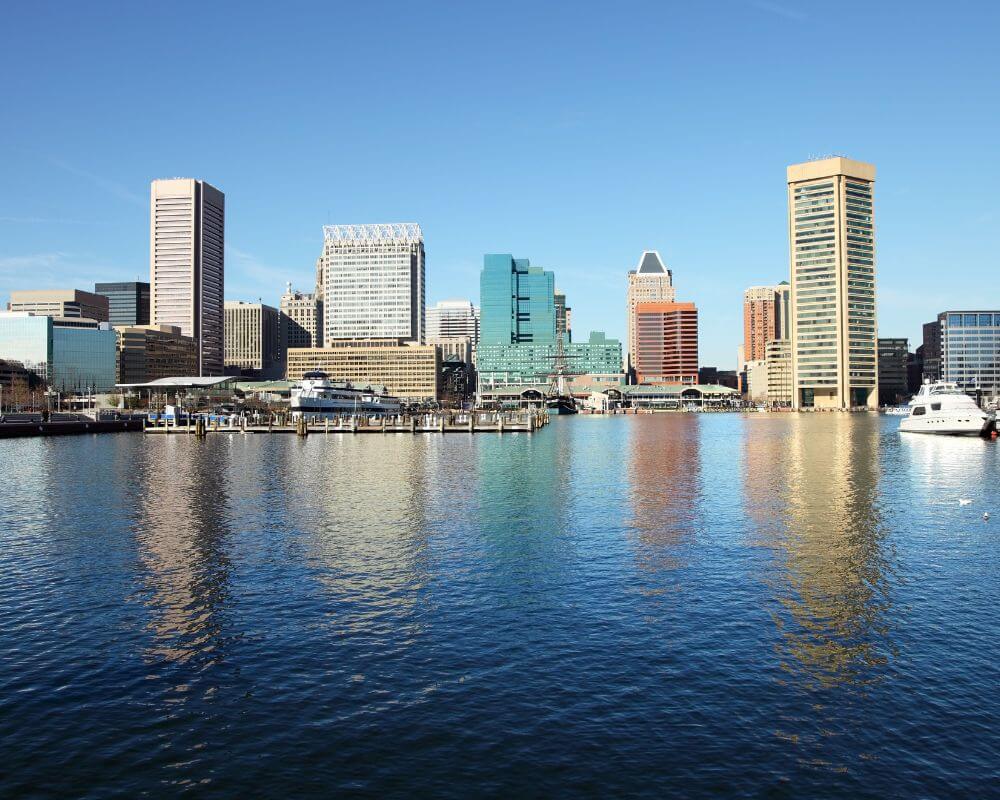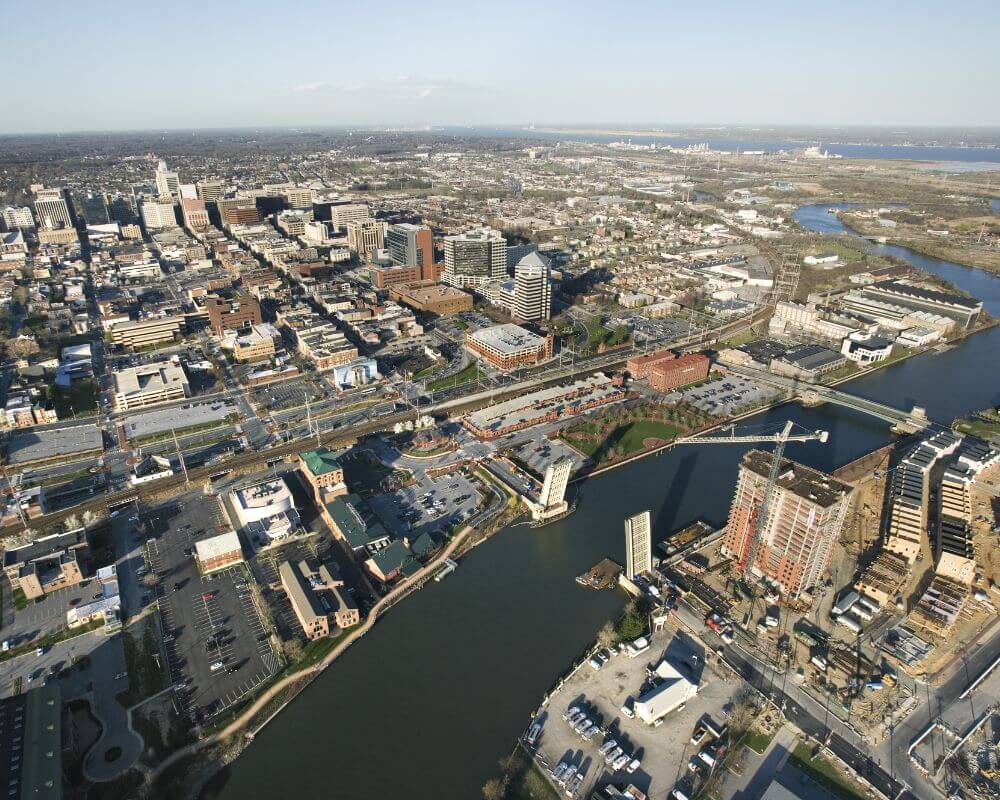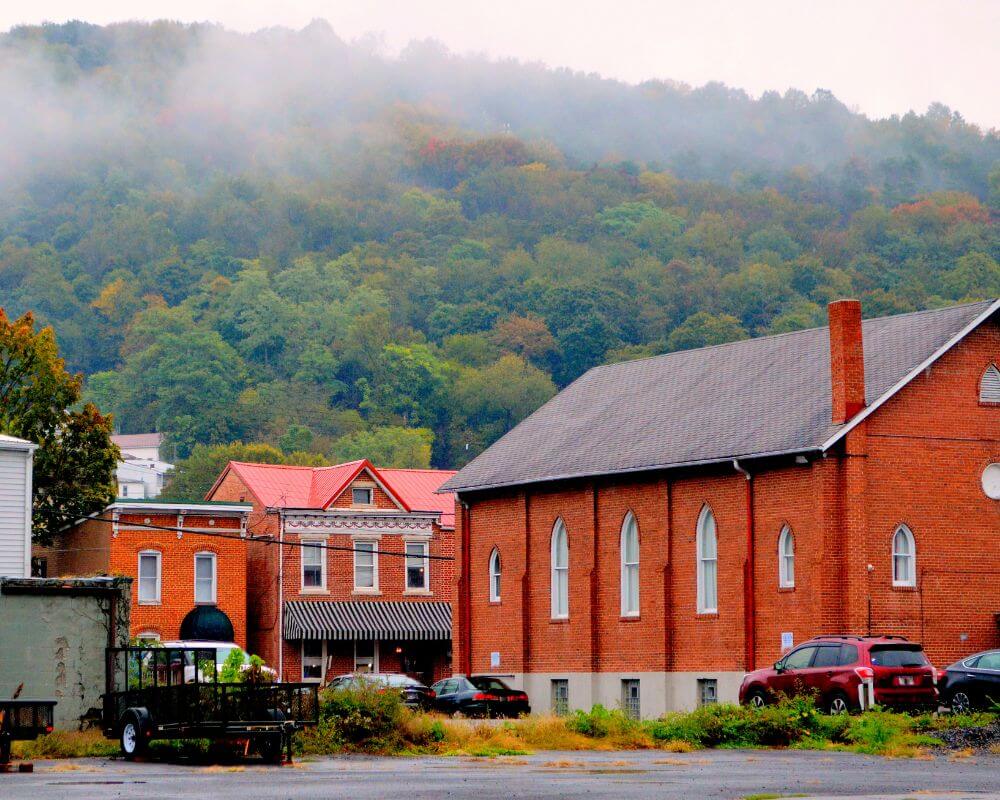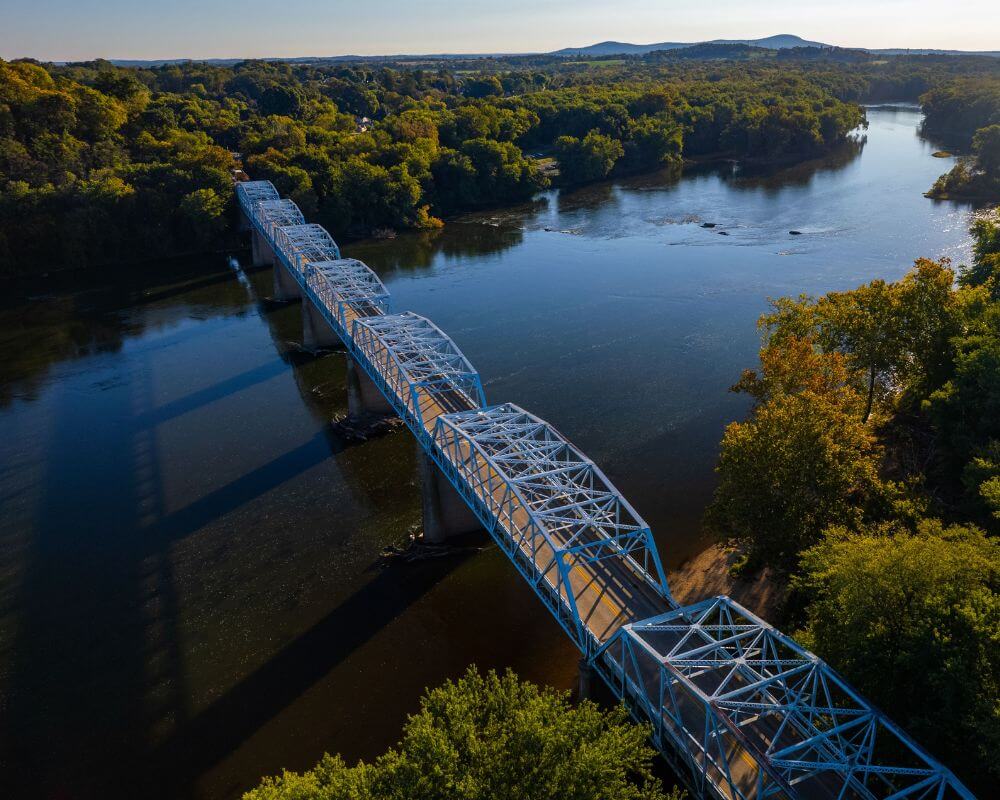Search for Other Treatment Facilities in Maryland:
- ASL or other assistance for hearing impaired
- Access to Recovery Voucher
- Buprenorphine Treatment Centers
- Drug and Alcohol Detox Treatment Centers
- Dual Diagnosis Treatment Centers
- General health services
- Halfway Houses
- Hospital Inpatient Care
- Long Term Drug Rehab and Substance Abuse Care
- Medicaid
- Medicare
- Mental health services
- Methadone Detoxification Treatment Centers
- Methadone Maintenance Treatment Centers
- Military Insurance (e.g.VA, TRICARE)
- Outpatient care
- Partial hospitalization or day treatment
- Payment assistance (Check with facility for details)
- Private health insurance
- Self Payment
- Short Term Drug Rehab and Substance Abuse Care
- Sliding fee scale (Fee is based on income and other factors)
- Spanish
- State Financed (other than Medicaid)
- Substance Abuse Treatment Centers
- Substance abuse treatment services
- See all treatment centers in Maryland
- programs for addicted criminal justice clients
- programs for alcohol related criminal justice clients
- programs for clients with HIV or AIDS
- programs for gays and lesbians (LGBT)
- programs for men
- programs for people with a dual diagnosis (co-occurring mental and substance abuse disorders)
- programs for pregnant and postpartum women
- programs for seniors and older adults
- programs for women
- programs for young adults
- residential beds are available for clients' children
Combat Opioid Epidemic with the Top-Notch Drug Treatment Centers in Maryland
The opioid crisis is devastating the United States, with alarming rates of overdose-related deaths plaguing the nation. Among the hardest-hit states are:
- West Virginia (40.03 per 100,000)
- New Hampshire (32.74)
- Ohio (31.11)
- Maryland (30.27)
- Massachusetts (29.21)
Maryland is in the top five states for opioid-related overdose deaths, especially with heroin and fentanyl being the primary cause. [1] The state confronts the opioid addiction crisis through a multi-faceted approach aimed at prevention, treatment, and harm reduction. The state implements various initiatives focusing on public education, expanding access to Maryland drug treatment centers and recovery services, and enhancing law enforcement efforts to combat illicit drug trafficking.
To heal from opioid addiction and the process of tapering off opioids can be challenging, but with the proper guidance and support, it is possible to achieve successful recovery. It’s essential to consult with a qualified healthcare provider who can assess your circumstances and develop a personalized tapering plan tailored to your needs. This plan may involve gradually reducing your opioid dosage over a specified period, taking into account factors such as the type of opioid, duration of use, and any underlying medical conditions. Close monitoring of your physical and psychological well-being is crucial throughout the tapering process to ensure safety and comfort. Your healthcare provider may also incorporate adjunctive therapies, such as medication-assisted treatment (MAT) or non-opioid pain management strategies, to alleviate withdrawal symptoms and support your recovery journey. Get the help you deserve today by contacting accredited centers for drug detoxification and get started living a life free from opioid dependence!
Compassionate Support and Fentanyl Prescription Drug Abuse Treatment Centers in Baltimore

The challenge with fentanyl extends beyond illicitly manufactured variants to include prescribed forms. While fentanyl is a potent medication commonly used for severe pain management, its high potency presents inherent risks, even when used as directed under medical supervision. Suppose you or a loved one have developed a dependency on fentanyl or any other narcotics. In that case, the situation can escalate into full-blown addiction, posing severe risks to health and well-being. Seeking help from Baltimore drug treatment centers is essential for safely tapering off opioid medications and addressing the underlying causes of addiction. These centers offer evidence-based treatments tailored to individual needs, such as medication-assisted treatment (MAT), counseling, and behavioral therapies.
The number of fentanyl-related deaths has skyrocketed over the years in Baltimore. In 2013, there were 12 fentanyl-related deaths out of 246 total overdose deaths. However, by 2016, that number surged to 419 fentanyl-related deaths out of 694 total overdose deaths, including alcohol-related ones. The increase in overdose deaths between 2017 and 2020 has been staggering. In 2020 alone, Baltimore City witnessed 1,028 overdose deaths, with 920 linked to fentanyl. [2]
If you or a loved one is also struggling with alcoholism, it’s crucial not to hesitate in seeking help. Comprehensive levels of care for drug and alcohol use disorder treatment are available to support individuals in achieving lifelong sobriety. Don’t let fear hold you back from reaching out for assistance. Explore AA meetings in Baltimore as a vital resource to overcome addiction and access professional support. Remember, facing addiction alone can be painful and challenging, but with the guidance and camaraderie of others on the path to recovery, healing is possible.
Safe and Evidence-Based Detox Program for Fentanyl: Drug Treatment Centers in Hagerstown

Understanding how fentanyl addiction develops is vital for recognizing the signs in yourself or a loved one. Even with legitimate prescriptions, prolonged fentanyl use can lead to dependence, altering brain function. Fentanyl mimics natural feel-good chemicals in the brain, causing it to produce less of its own. When fentanyl use stops, the brain struggles to make these chemicals, leading to withdrawal symptoms that affect both the body and mind. Trying to detox alone can be dangerous, as severe withdrawal symptoms may arise. Seeking medical detox from a trusted treatment center is the safest option.
A safe and evidence-based detox program for fentanyl addiction is essential for individuals seeking recovery, particularly in Hagerstown drug treatment centers. Tapering off opioids, including fentanyl, under the guidance of medical professionals is recommended over quitting “cold turkey” due to the severe withdrawal symptoms and potential risks associated with abrupt cessation. Tapering involves gradually reducing the dosage of opioids over a specified period, allowing the body to adjust gradually and minimizing the intensity of withdrawal symptoms. This method is scientifically proven to be safer and more effective in managing withdrawal discomfort while reducing the risk of complications. In a comprehensive detox program, individuals receive personalized care and support from a multidisciplinary team of healthcare professionals, including physicians, nurses, and counselors. Medications may be prescribed to alleviate withdrawal symptoms and cravings, promoting a more comfortable and successful detoxification process. Moreover, therapy sessions, support groups, and holistic approaches such as mindfulness practices and nutritional support are integrated into the treatment plan to address the psychological, emotional, and spiritual aspects of addiction. Safely taper off fentanyl and get professional assistance today by connecting with our treatment specialist.
Bel Air Drug Treatment Centers in Opioid Drug Toxicity Prevention Programs

In Maryland, the Center for Harm Reduction Services (CHRS), under the Maryland Department of Health (MDH), runs a statewide program for distributing naloxone in communities. CHRS allows various organizations, including health departments, nonprofits, law enforcement, and treatment programs, to give out naloxone without a prescription. They offer training on how to use naloxone and provide it for free to ensure more people can access it in case of an overdose. [3]
Drug treatment centers in Bel Air are also helping in opioid drug toxicity prevention programs, employing comprehensive strategies to address the complex challenges posed by opioid addiction. These centers prioritize evidence-based approaches rooted in scientific research and clinical expertise to mitigate the risks associated with opioid use. They recognize the importance of compassionate care, providing a safe and supportive environment where individuals can heal and overcome the grip of addiction. Moreover, these centers collaborate closely with healthcare providers, community organizations, and government agencies to implement holistic prevention strategies that address the root causes of opioid drug abuse and promote long-term recovery.
Opioid Crisis and Finding Help at Cumberland Drug Treatment Centers

Cumberland boasts a vibrant downtown area with numerous local businesses and attractions, making it an ideal destination for residents and visitors alike. The city holds historical significance as the starting point of the United States’ first National Road, now U.S. 40, and the western end of the Chesapeake and Ohio (C&O) Canal from Washington, DC. Cumberland also served as a pivotal railroad hub connecting Baltimore and Chicago, contributing to its importance as a regional transportation center. However, despite the progress of the city, the state of Maryland itself is struggling with drug addiction, affecting many different regions. In 2021, people aged 55 and older had the most deaths from intoxication in Maryland, with 861 deaths. This age group made up about 30% of all intoxication deaths. Over the past decade, deaths in this older age group have been going up. In 2021, about two-thirds of deaths were among people aged 25 to 54. [4]
The relentless surge in opioid-related deaths and overdoses calls for the urgent need for comprehensive and accessible drug treatment centers in Cumberland. These facilities are crucial in offering evidence-based interventions tailored to the unique needs of individuals struggling with opioid addiction, ranging from medically assisted detoxification to long-term rehabilitation programs. By providing a continuum of care that extends beyond the mere cessation of drug use, Cumberland’s drug treatment centers aim to restore dignity, purpose, and resilience to those struggling with the devastating effects of opioid addiction. Get started with the admission process today by contacting these top-rated facilities.
Top-Rated Drug Treatment Centers in Gaithersburg for Opioid Use Disorders

Opioid overdoses are a significant concern, but Montgomery County, where Gaithersburg is located, has been taking action to combat this crisis. Public safety workers, like Police and Fire and Rescue Services, carry naloxone, a medication that can reverse opioid overdoses. School health nurses are trained to use naloxone, and it’s available in all middle and high schools. Montgomery County also offers free naloxone training and kits to the community through Maryland’s Overdose Response Program. [5]
Discover a pathway to recovery and reclaim your life from opioid addiction with the top-rated drug treatment centers right here in Gaithersburg. Medical professionals understand that battling addiction alone can be a painful and harsh journey. That’s why they’re here to offer you the support, guidance, and evidence-based treatments you need to overcome opioid use disorders. Gaithersburg drug treatment facilities provide a compassionate and comprehensive approach to recovery tailored to meet your individual needs.
Don’t let fear hold you back. With proper treatment, a wealth of support is available to guide you long-term. Once you’ve completed your treatment program, it’s essential to transition into a supportive environment to continue your journey toward lasting recovery. Halfway houses in Gaithersburg provide precisely that—a supportive environment where you can receive ongoing guidance and assistance as you navigate life after addiction treatment. Reach out today and discover the support waiting for you.
Maryland Drug Treatment Centers for Opioid Addiction Recovery and Long-Term Abstinence
In 2017, Maryland had 1,985 overdose deaths involving opioids, which is a rate of 32.2 deaths per 100,000 people. This rate is twice as high as the national average of 14.6 deaths per 100,000 people. Maryland also ranks among the top 5 states for opioid-related overdose death rates, with the biggest increase seen in cases involving synthetic opioids, mainly fentanyl. [6]
Opioid use disorder can disrupt lives and lead to long-term consequences if left unaddressed. Despite its complexity and chronic nature, opioid addiction is highly treatable. For those struggling with opioid dependence and addiction, drug treatment centers in Maryland offer assistance in breaking the cycle of addiction. These facilities create an atmosphere of compassion, confidentiality, and professionalism to aid in your recovery journey. They believe in comprehensive treatment that is medically and professionally guided, and we tailor programs to meet your specific needs. Contact our drug treatment specialists today to get started with the recovery process!
Resources:
[1] Lyle Cooper R, Thompson J, Edgerton R, Watson J, MacMaster SA, Kalliny M, Huffman MM, Juarez P, Mathews-Juarez P, Tabatabai M, Singh KP. Modeling dynamics of fatal opioid overdose by state and across time. Prev Med Rep. 2020 Aug 26;20:101184. Doi: 10.1016/j.pmedr.2020.101184. PMID: 32995141; PMCID: PMC7516293.
[3] Byregowda H, Tomko C, Schneider KE, Russell E, Johnson RM, Susukida R, Rouhani S, Parnham T, Park JN. Disruptions to naloxone training among lay and occupational responders in Maryland during the emergence of COVID-19: early impacts, recovery, and lessons learned. Drug Alcohol Depend. Rep. 2023 Jun 16;8:100173. Doi: 10.1016/j.dadr.2023.100173. Epub ahead of print. PMID: 37362079; PMCID: PMC10271935.
[5] Save a Life – Department of Health and Human Services – Montgomery County, MD (.gov)
[6] Maryland Opioid Summary – National Institute on Drug Abuse (NIDA)